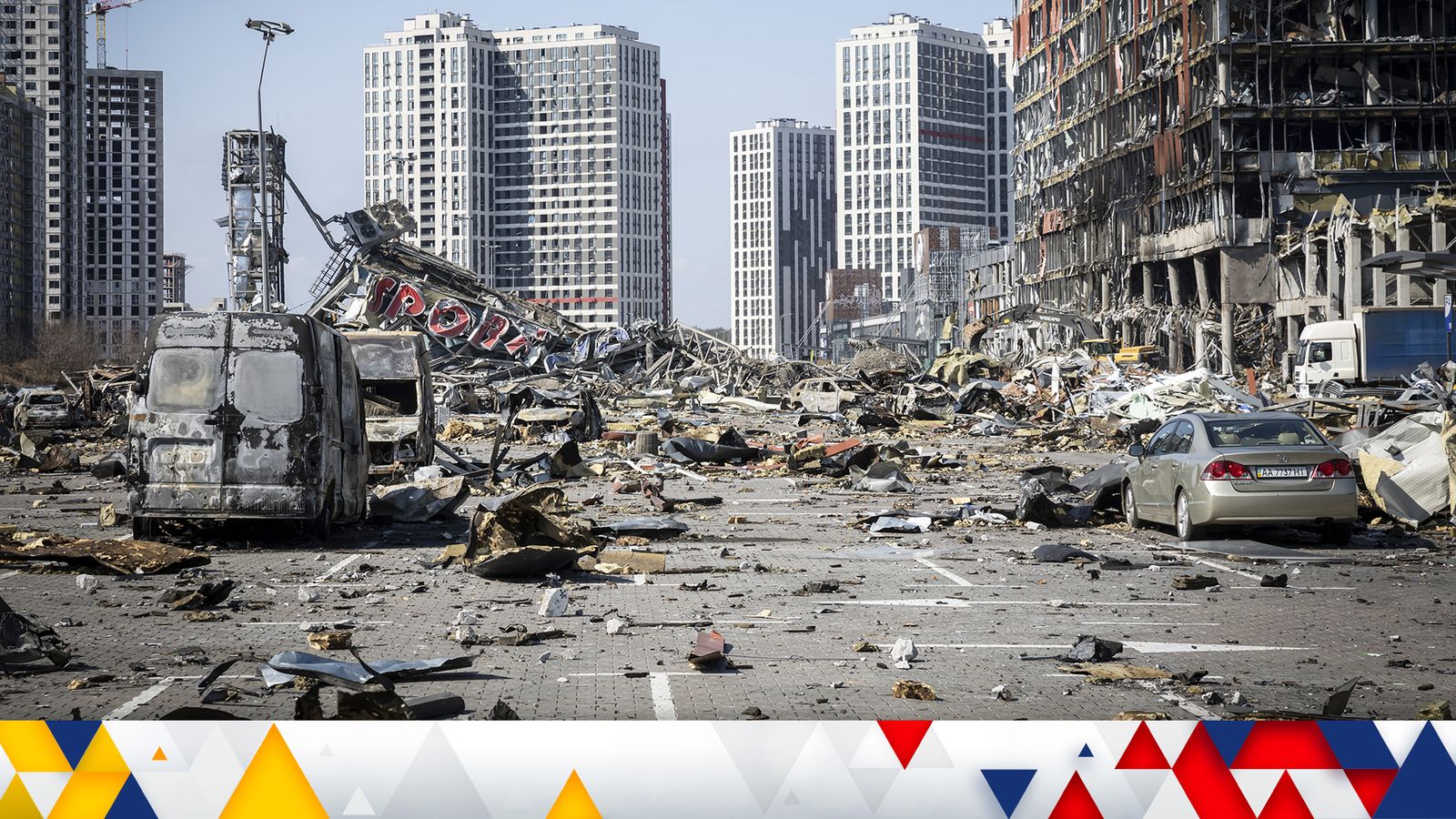NATO’s chief has defended the 30-nation alliance against criticism that it has failed to prevent Russian President Vladimir Putin’s forces from “trampling all over Ukraine”.
General Sir Nick Parker, a former commander of UK land forces, suggested NATO has been “defeated” because Russia called the alliance’s bluff by invading its neighbour.
He said a smaller coalition of nations prepared to develop an “offensive counter-strategy to Putin” will be needed to respond militarily to Moscow in the future.
But Jens Stoltenberg rejected the suggestion and told Sky News: “Any idea of a small group of NATO allies going into that conflict is dangerous, will lead to escalation and more death and more destruction. So I don’t think that’s a good idea at all.”
Ukraine news live: ‘Butcher of Mariupol’ among those hit by new UK sanctions
Please use Chrome browser for a more accessible video player
NATO chief warns war will get worse if it provides ground troops
Mr Stoltenberg said Russia had underestimated not only the strength of the Ukrainian army, but also the unity of NATO and the international community in imposing unprecedented sanctions.
He also praised ongoing efforts to provide logistical and humanitarian support to Ukraine, which he described as “a highly-valued partner”.
Ukrainian President Volodymyr Zelenskyy has failed to get Western allies to create a no-fly zone over his country – and the European Union has so far refused to follow the US example of banning Russian oil and gas.
Mr Stoltenberg said the alliance’s main responsibility is to protect all NATO allies – encompassing one billion people – which it has successfully done for more than 70 years and during the current crisis.
He said the situation would only get worse if NATO got involved on the ground and in the air.
In other developments:
• Zelenskyy says Russian invasion at a ‘turning point’
• Putin threatens to cut off gas contracts if payment not made in roubles
• UK announces new sanctions against Russian propagandists and state media
• Kremlin advisers afraid to tell Putin the truth about Ukraine, spy chief says
Please use Chrome browser for a more accessible video player
‘We have to expect more human suffering’
Mr Stoltenberg said the Ukrainian army is bigger, better equipped, trained and led than ever before thanks to NATO allies – and that is why the country has been able to resist the invading Russian forces.
However, he warned the world not to be fooled by Russia’s false promises and said NATO is yet to be convinced it is negotiating in “good faith” in peace talks in Istanbul.
He said Moscow’s objective since launching its invasion of Ukraine in February has not changed.
“Russia continues to pursue a military outcome of this conflict, and we have to expect more human suffering and continued shelling of Ukrainian cities, including Kyiv,” he said.
“President Putin has made two big mistakes. One is to underestimate the strength of the Ukrainian people and forces, and the Ukrainian political leadership, and then he has totally overestimated the strength of his own military armed forces.
“We have seen all the logistical problems, the supply problems and several examples of low morale within the Russian armed forces.
“But at the same time, we need to realise that Russia is continuing to wage war and therefore has demonstrated the will to not only inflict pain and suffering on all the people… but to continue to do so despite all the heavy losses it has suffered.”
Read more: What are the chances of a peace deal?
Please use Chrome browser for a more accessible video player
Has NATO already been defeated?
Sir Nick, who has also acted as an adviser to Ukraine’s defence ministry, said NATO – which includes the UK, US, Canada, and numerous European countries – had adopted a defensive position by putting a protective ring around its members.
“Slightly controversially I suppose, I mean NATO’s been defeated, NATO’s bluff was called,” he told BBC Radio 4’s Today programme.
“We were unable to stop the Russians trampling all over Ukraine and now NATO is holding the line of the 2004 expansion, along the line of the Baltic States and Poland and Hungary and Romania.”
He said the alliance does not have the capacity “to move on to the offensive with its 30 nations all with slightly different views” and so “we need to have a smaller coalition of nations who can start to develop an offensive counter-strategy to Putin”.
Subscribe to the Ukraine War Diaries on Apple Podcasts, Google Podcasts, Spotify and Spreaker
Last week, the NATO chief announced a boost in defence spending and the deployment of “four new battle groups” in Bulgaria, Romania, Hungary, and Slovakia.
He said the alliance was ready to defend every inch of its territory with more troops on the ground and in the air.








